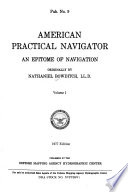 | Nautical astronomy - 1977 - 1412 pages
...which he believed were applicable to the planets. Newton's laws of motion are : 1. Every body continues in a state of rest or of uniform motion in a straight line unless acted upon by an external force. 2. When a body is acted upon by an external force, its acceleration... | |
 | Henry Kater, Dionysius Lardner - Mechanics - 1830 - 412 pages
...the " laws of motion." They are as follow : — " Every body must persevere in its state of rest, or of uniform motion in a straight line, unless it be...compelled. to change that state by forces impressed upon it." II. " Every change of motion must be proportional to the impressed force, and must be in... | |
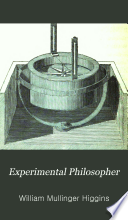 | William Mullinger Higgins - Physics - 1838 - 532 pages
...depend, in the three following propositioiu : — 1 . Every body must persevere in its state of rest, or of uniform motion in a straight line, unless it be...compelled to change that state by forces impressed upon it Motion in as naturally permanent as rest, and a body in motion would continue in motion for... | |
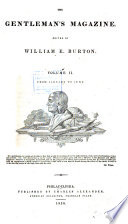 | 1838 - 448 pages
...is — and it was Sir Isaac Newton who discovered it — that " every body must persevere m in slate of uniform motion in a straight line, unless it be compelled to change that direction by BOOM new force impressed upon it." That is to say, if yon once put a body in motion, it... | |
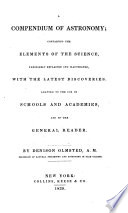 | Denison Olmsted - Astronomy - 1839 - 300 pages
...heavenly bodies. It is commonly called the First Law of Motion and is as follows : Every body perseveres in a state of rest, or of uniform motion in a straight line, unless compelled by some force to change its state. This law has been fully established by experiment, and... | |
 | Denison Olmsted - Astronomy - 1841 - 486 pages
...great laws of motion, which are three in number. The FIRST LAW is as follows : every body perseveres in a state of rest, or of uniform motion in a straight line, unless compelled by some force to change its state. By force is meant any thing which produces motion. The... | |
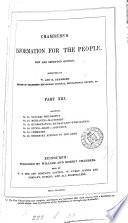 | Chambers W. and R., ltd - 1842 - 744 pages
...Newton in the following three propositions : — 1st, Every body must persevere in its state of rest, or of uniform motion in a straight line, unless it be...compelled to change that state by forces impressed upon it. 2d, Every change of motion must be proportional to the impressed force, and must be in the... | |
 | William Benjamin Carpenter - 1843 - 336 pages
...stated by Newton in the following terras : — " Eeery body must persevere in its state of rest, or of uniform motion in a straight line, unless it be...compelled to change that state by forces impressed upon it." That bodies have a tendency to remain in a state of rest, unless they are acted on by some... | |
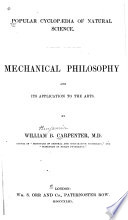 | William Benjamin Carpenter - Astronomy - 1843 - 604 pages
...stated by Newton in the following terms : — " Eeery body must persevere in its state of rest, or of uniform motion in a straight line, unless it be compelled to change that, stale by forees impressed upon it." That bodies have a tendency to remain in a state of rest, unless... | |
 | William Benjamin Carpenter - Astronomy - 1844 - 604 pages
...stated by Newton in the following terms : — " Every Iody must persevere in its state of rest, or of uniform motion in a straight line, unless it be...compelled to change that state by forces impressed upon it." That bodies have a tendency to remain in a state of rest, unless they are acted on by some... | |
| |